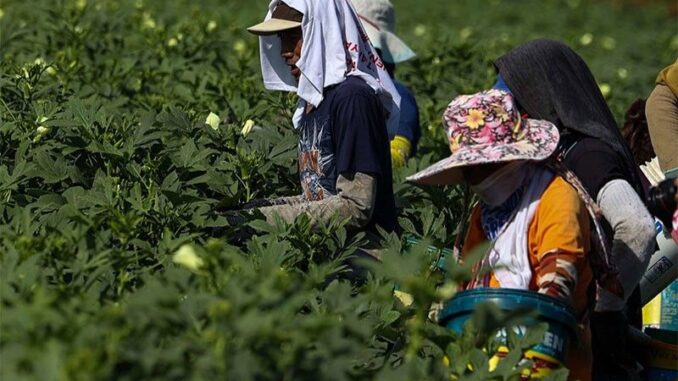
MANILA, Philippines — The 29th Conference of Parties (COP) leadership should address resource allocation disparities by providing farmers and fisherfolk a bigger share of available climate financing to help them cope with the ill effects of climate change, according to non-government organization Rice Watch and Action Network (R1).
“The fight against climate change cannot emphasize enough the importance of agrifood systems. Ironically, this sector receives a meager share of the pie and it continues to decline,” R1 said.
Citing a recent analysis by the Climate Policy Initiative, R1 said small-scale agri-food systems received only 0.8 percent or about $5.53 billion of the total $660.2 billion climate finance across all sectors from 2019 to 2020.
The group noted that in 2021, the United Nations’ Food and Agriculture Organization revealed that climate-related development finance in the agri-food systems declined by 12 percent on an annual basis to $19 billion.
“We join the united efforts of smallholder farmers, civil society, Indigenous Peoples, youth and women in seeking equitable share in climate financing,” R1 said.
“Only then can we truly uphold climate change resilience among our sectors that are most vulnerable to the devastation of climate change impact,” it added.
R1 said it is currently working with national and local government agencies in providing local climate information services and technical support so these information are adopted in climate change action plans.
“Farmers are also trained on mechanisms to make their farms and families resilient to the devastating impact of this climate crisis,” it said.
“These are some of the programs, activities and projects that need investment if only the government has the resources and capacity to provide to local government, farmers and other stakeholders,” it added.
Earlier this week, the Department of Finance (DOF) disclosed that it is pushing for a yearly climate financing package of $1.3 trillion annually from developed countries to address mounting challenges posed by climate change.
The target is aimed at financing climate adaptation, mitigation as well as loss and damage initiatives that are aligned with the urgent needs of developing nations like the Philippines.
The DOF said it joined the negotiations for scaled-up climate finance flows to vulnerable nations during the 29th COP to the United Nations Framework Convention on Climate Change (COP 29) in Baku, Azerbaijan.
“The Philippines is aggressively pushing for bold actions and sustained, increased financing for countries that are perpetually on the frontlines of catastrophic typhoons,” Finance Undersecretary Maria Luwalhati Dorotan-Tiuseco said during the high-level ministerial dialogue on climate finance.


Be the first to comment